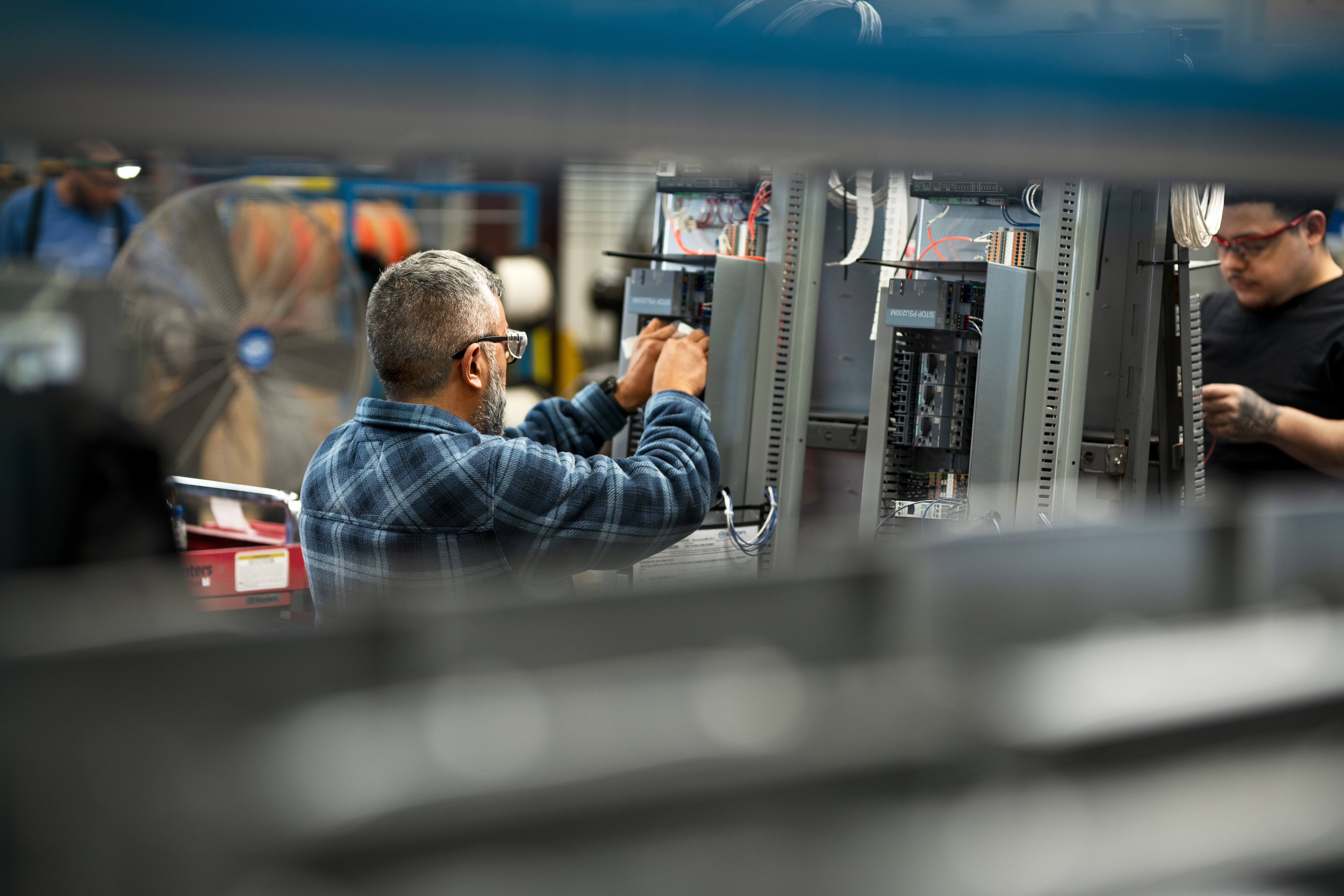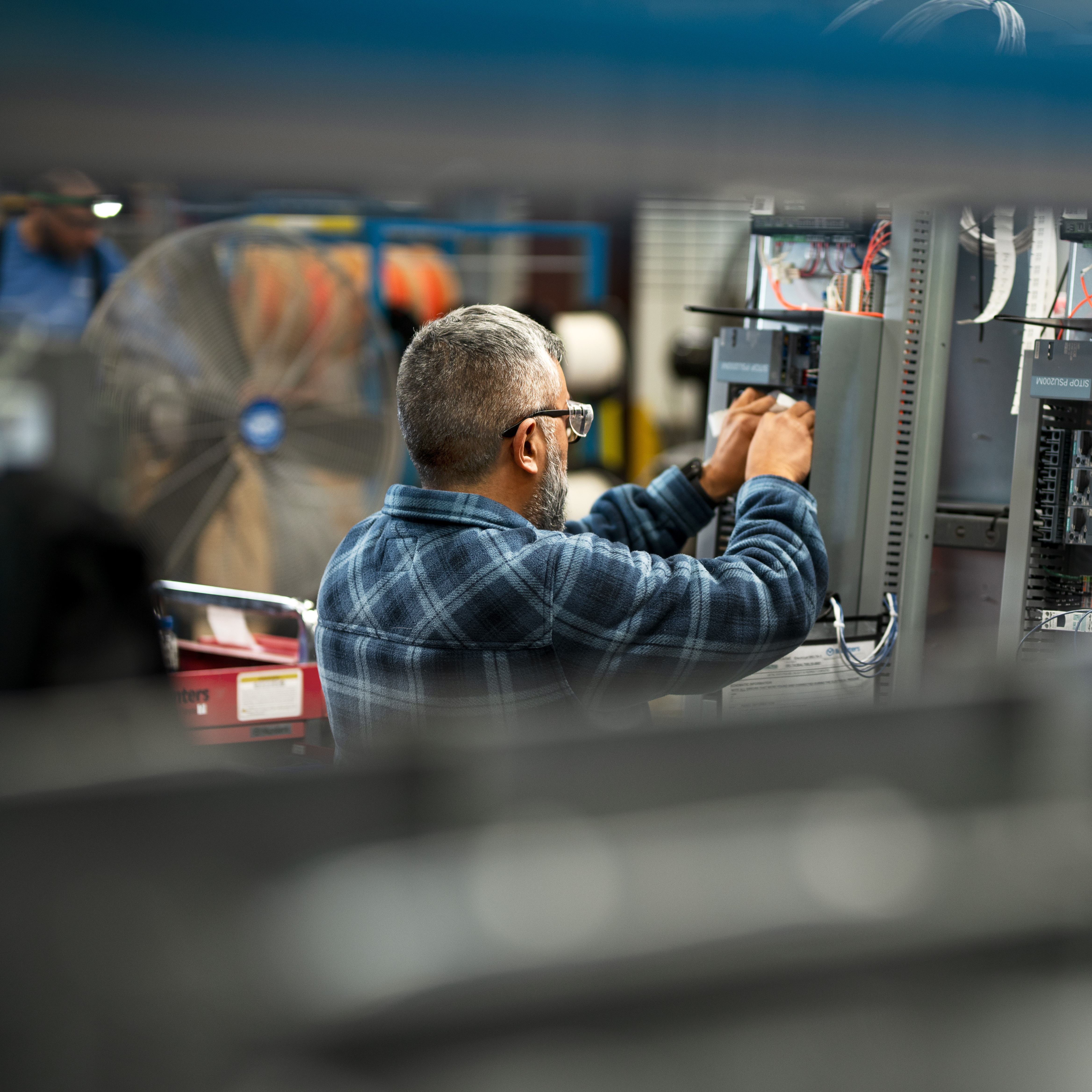SK Pang
When SK Pang started at Munters in 1987, there was no market for dehumidifiers in Southeast Asia. In the tropical environment, cooling technologies were widely adopted with some tweaks, and to some extent, they still are the industry norm for cooling and humidity control needs.


A new market opens up
“It’s natural for people in our climate to seek comfort, so cooling has long been the primary approach for engineers here,” he explains. “However, if you talked to them about desiccant dehumidification they would ask “Why, isn’t it already too hot? when they learned that our equipment has an electric heater for rotor reactivation. But, once they experienced failures in relative humidity controls in, for example, clean rooms, they became convinced of the benefits of what we had to offer. By 1997, our premium dehumidifying solutions accounted for more than 70% of our business.”
As the Managing Director of Munters in Singapore, SK Pang has a pragmatic, can-do approach to business, believing that everything is possible if you are willing to be creative.
“We had a customer in the veneer lamination business for hardwood furniture. To ensure the quality of the thin-slice lamination veneer material, they needed to maintain a relative humidity of about 36% at near-ambient temperatures. I realized that wood production creates a lot of waste, such as wood chips. They used this waste to heat up their boiler, so I thought, why not channel the heat into our equipment? That meant we only needed to run the motors, which significantly reduced electricity consumption. That was how we started our journey of recycling waste heat. Looking back, we started Munters journey of carbon footprint reduction as early as 1987.”

Hard work pays off
Another example of SK Pang’s can-do approach to business was a project from 2008, involving the oil industry.
“Due to the deteriorating market conditions, vessels owners were mothballing oil rigs and storage vessels. In the beginning, we could not meet their specifications and delivery requirements, so we lost the first order to the competition who had better local presence. We could have easily given up, but no, we recharged and persisted. Our colleagues at the Tobo factory in Sweden and our own service team, all swung in and engaged in a collective team effort to getting the next order.”
The team won the next 40 orders and till today, is still supporting the Marine Industry in the region.
“I have heard it many times, ‘SK, you’re crazy,’” he says of the orders he and his team have managed to secure over the years, several quite unconventional ones at that.

There's only "we" in legacy
"One day, I received a phone call from our factory in Tobo. They asked, ‘Are you sure you ordered 60 units of Humimax? These are humidification units, not the dehumidifiers we normally order.”
The order was indeed correct.
“We proposed it in collaboration with a local Mechanical & Electrical Contracting representative in Beijing, where the climate is much drier and cooler. The caller then explained, ‘I just wanted to confirm because this single order accounts for about 70% of our total yearly production of these units!’"
SK Pang started as an Applications Engineer and advanced to Area Manager in 1989 before becoming Managing Director of Munters Southeast Asia in 2003.
He emphasizes the importance of pragmatism and teamwork in his leadership approach, focusing on the overall good rather than individual legacies and promoting a culture where everyone works together towards common goals.
“I never do anything for personal glory. Instead, I emphasize the value of working together.”
It is the co-creation that has kept SK Pang at Munters for all these years. “Nothing is more satisfying than seeing the whole team working into the night, supporting each other, and ultimately being rewarded by winning the deal.”







